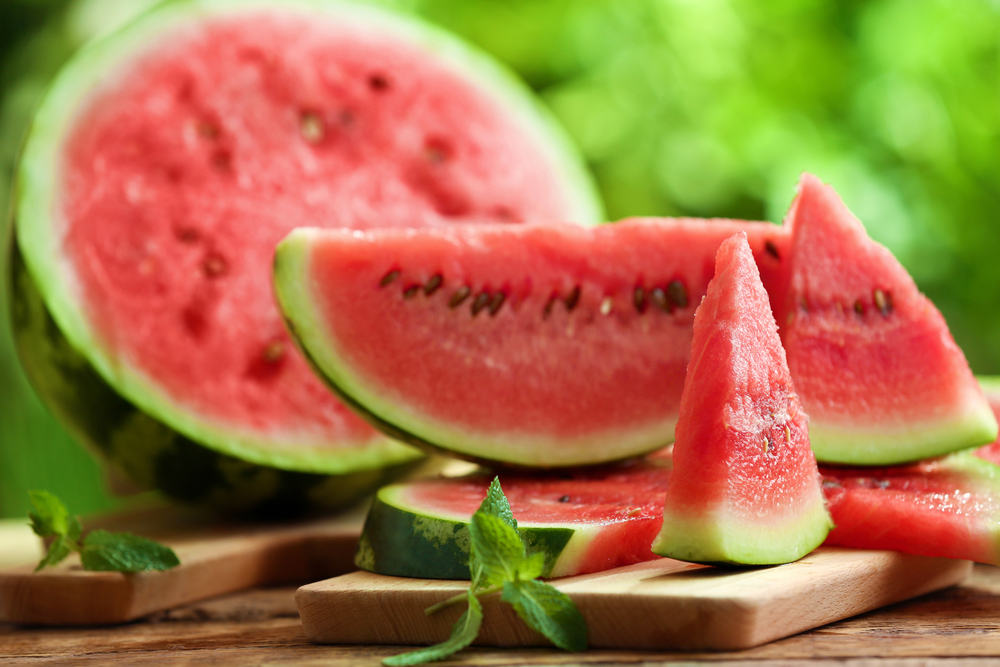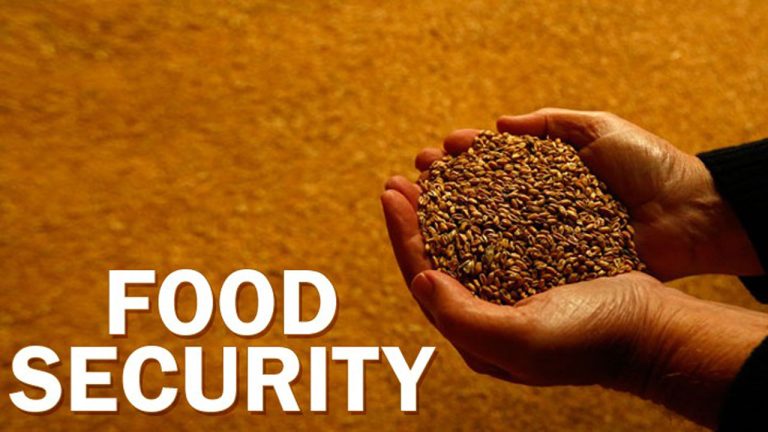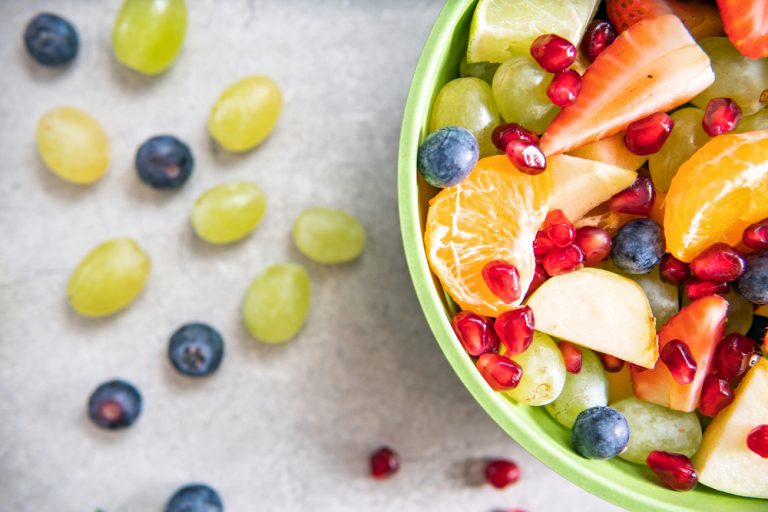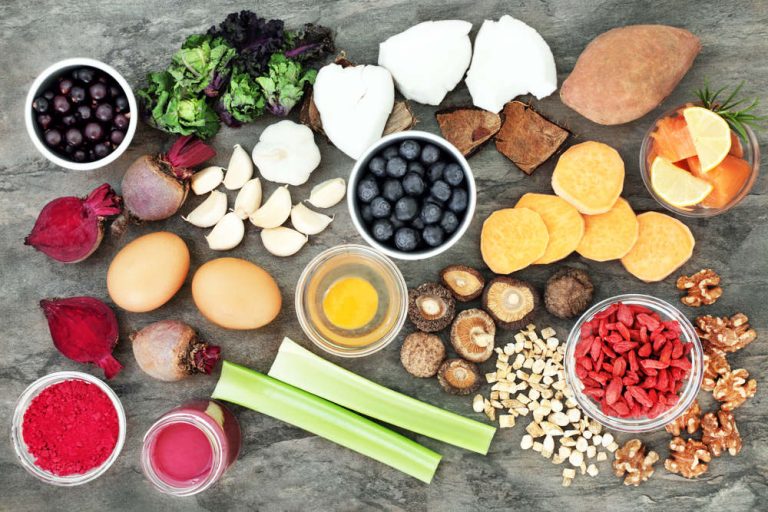Nothing says “Summer” better than a cool, refreshing, sweet, juicy, delicious slice of ripe watermelon—no matter what time of year it is. But I often hear cautions on eating watermelon—that it is high glycemic, full of sugar, mostly water, not very nutritious, etc. Right? Or wrong?
While watermelons are mostly water—90% or so, they are also full of vitamins A, B6, C, lycopene, antioxidants and minerals. Remember hearing about the lycopene in tomatoes? Watermelon, another red-colored fruit, is FULL of this powerful phytonutrient! In fact, watermelon has some of the highest levels of lycopene of all fruits and veggies. Just one cup of watermelon has 1 and a half times the lycopene of a large fresh tomato. And who eats just one cup of watermelon? I know I don’t!
Because watermelon is one of the best sources of lycopene with more than 6,500 micrograms in less than half a cup, you are getting an army’s worth of inflammation-fighting antioxidant activity! Lycopene from the red flesh of watermelon is very stable, even after the watermelon has been cut and stored in the refrigerator. Lycopene is thought to be even more powerful than its other orange/red colored ally, beta carotene—found in red and orange fruits and veggies.
Cardiovascular Benefits
Lycopene is a powerful natural anti- inammatory and antioxidant, valued for its role in protecting the cardiovascular system, bone health, and preventing cancer. Along with lycopene, watermelons contain another powerful phytochemical, citrulline, an amino acid. Citrulline gets converted into another important chemical in the body, arginine, or L- arginine. Arginine is used to create nitric oxide, which has powerful benets on the heart and blood vessels.
NO can actually cause blood vessels to relax and open up, lowering blood pressure and helping the body carry more oxygen to parts of the body where it is needed–like muscles, your heart and your brain. A study from Florida State University found that watermelon could make a significant difference in lowering blood pressure–especially in overweight people, by relaxing the blood vessel walls.
Citrulline, when it converts into arginine, can also help prevent excess accumulation of fat in fat cells, because it blocks an enzyme that stores this fat. And because citrulline is a precursor to nitric oxide, it can also help improve erectile dysfunction in men, in a similar way that Viagra works—although you would have to quite a bit of watermelon to get the same effect as Viagra.






